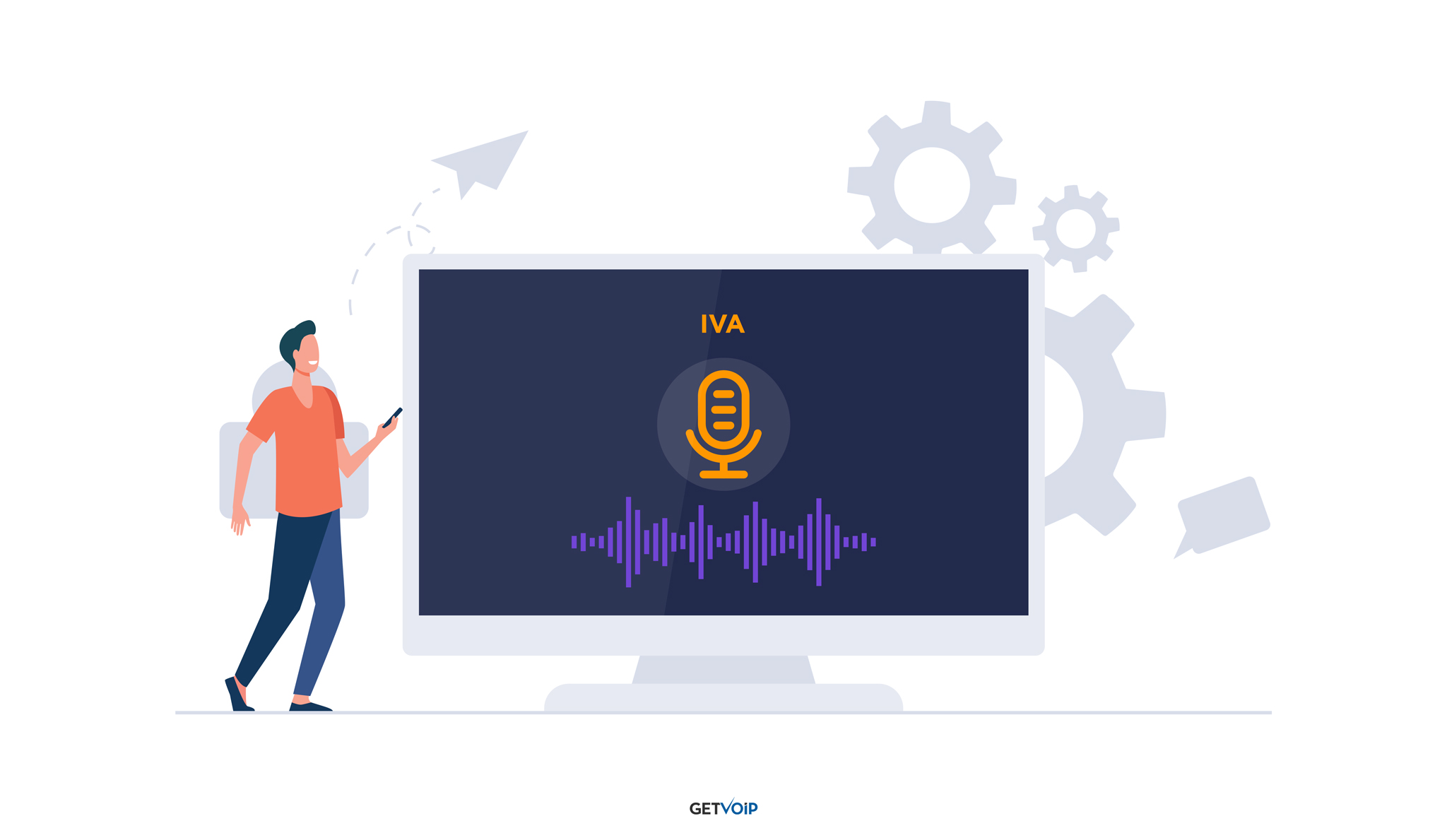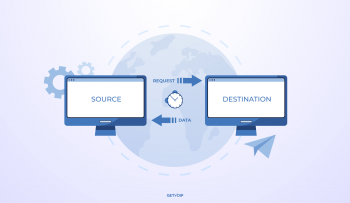Anyone who has called out “Hey Siri!” or “Hey Alexa!” has used an Intelligent Virtual Assistant, or IVA. These amazing tools continue to change how people find information and interact with companies who more and more leverage virtual assistance technologies to provide customer support. Let’s look more at IVAs, what they can do, how businesses can benefit from them and how some companies already leverage their use.
What is an Intelligent Virtual Assistant (IVA)?
While tools like Apple’s Siri, Amazon’s Alexa, Google Assistant, Microsoft’s Cortana and IBM’s Watson are the best known, many businesses use text-based intelligent virtual assistant applications to provide customer service.
Intelligent virtual assistants leverage artificial intelligence and machine learning-powered software to give users a life-like experience that allows them to quickly find information or complete tasks. These platforms utilize natural language processing, also known as NLP, that helps computers understand text and spoken words similar to humans.
For many companies, intelligent virtual assistants provide an important service layer. IVAs offer a better customer experience than traditional chatbots and can help customers reach a successful resolution faster. They can reduce the number of customers who need to speak with a live operator while still having a positive user experience.
Difference Between an Intelligent Virtual Assistant and a Chatbot
It’s not uncommon for those new to intelligent virtual assistants to confuse how they compare with chatbots. While they may at first appear similar, IVAs provide a superior customer experience due to their AI-powered backbone that provides real-time results.
| Chatbot | Intelligent Virtual Assistant (IVA) |
| Rule-based structure that can handle straight-forward FAQ | AI can better interpret queries, leading to more specific answers |
| Robotic, formulaic answers | Chat more resembles human speech |
| Only able to understand specific inputs with no margin for error | Able to process queries with spelling errors, slang, grammatical mistakes, or overly confusing language |
| Uses auto-assigning routing logic to connect with agents | Can connect users based on agent availability and capabilities |
| Uses static buttons to prompt users’ next steps | Providers users with autosuggest responses based on the start of their text inquiry |
How Do Intelligent Virtual Assistants Work?
Intelligent virtual assistants process the words a user speaks or types and converts them into digital data that the software can analyze. The software uses an innovative speech recognition-algorithm to find the most likely answer. As the number of queries increase, the software learns over time what users want when they enter a certain answer. This helps improve the reliability and speed of responses.
End users interact with a solution that closely mimics a human agent. Some users using a text-based option may believe they are messaging with an agent. Even those that understand that the system is still an automated bot, the IVA system hopefully works to get them the fast help they desire. This is typically when the functionality of older chat-based systems breaks down as they can lead users down frustrating and unhelpful paths without much help for recourse.
Benefits of an IVA’s for Customer Service
Personalized Customer Experience
Customers in need of assistance want help in the most efficient manner. They do not want to navigate a seemingly endless phone tree or interact with a chatbot that offers limited functionality. IVAs provide a humanlike experience that can help customers quickly reach a resolution. They become frustrated when they must wait for assistance or cannot reach appropriate help. In many cases, these tools can mitigate a customer’s problem or route their call faster to someone who can help.
Reduced Wait Times
Every second that a company can reduce from its average customer service call saves money and makes customers happy. IVAs can manage common and mundane challenges without the need for a live agent. They can also collect vital customer information – an account number, a personal identification number, or a basic description of their problem – and have it ready for the agent to optimize the interaction. This stops the agent from spending time asking this information and lets them get directly to servicing the customer.
Around the Clock Service
Intelligent virtual assistants do not require sleep or time off. They can provide customers with service at any time of day. This is especially important for companies based in the United States who do not want call center operations to move overseas but also want to keep extended hours or larger e-commerce platforms like Amazon. IVAs can solve common challenges or collect customer information for a follow-up call from a live agent during more traditional business hours.
Improved Efficiency
Businesses have continually sought call center solutions that decrease the burden on live agents while still providing a high-level of customer service. IVAs help these businesses deflect customers from using phone, email and live chat channels in lieu of artificial assistants. They can take over and deflect customer requests until a human operator is required. This ensures that the time agents spend on the phone is directly helping customers with unique or sensitive cases that require a personal touch.
How Businesses Use Intelligent Virtual Assistants
Intelligent virtual assistants can be deployed across the value chain to help customers and employees. These include areas such as helping accelerate online sales, collections, and contact center and customer relations support. These tools are being used across industries from standard retail and e-commerce to healthcare, automotive and other customer-focused business sectors.
Let’s look at some more specific case studies:
- Westar Energy, the largest utility company in Kansas, turned to IVAs to reduce the time its agents spent on each call and improve customer self-service. By using these tools, Westar was better able to manage its growing call volume. According to statistics released in 2019, Westar has 39% of its callers able to complete transactions through self-service. In total, 80% of callers reported satisfaction with their overall experience, helping the organization increase its JD Power scores 25% since implementation.
- The US Citizenship and Immigration Service uses a service called Emma, which helps manage questions from citizens typed in both English and Spanish. The service has managed more than 10.5 million requests from 3.3 million unique visitors with a 91% success rate for answering questions posted in English and an 89% success rate for questions posted in Spanish.
- Volvo has plans to develop conversational assistance to guide drivers in the use of various in-car apps to deliver a more effortless connected car experience. One particular area is in the creation of Jakob, a new assistant that will answer user questions about the company’s XC40 Recharge Pure Electric car, which it will begin selling in Brazil in early 2022.
Conclusion
Intelligent virtual assistants have already become a part of everyday life. Tools like Alexa and Siri have provided people with a new way to find information and interact with the online world. The artificial intelligence that powers these solutions can help businesses as well improve how they interact with their customers.
IVAs provide businesses with new and unique ways to solve customer challenges. People today have become accustomed to speaking with automated systems to find solutions. The use of these capabilities will only continue to grow in the coming years. Businesses with large customer service operations should consider investing in this technology and exploring ways it can help them improve operations and efficiency while also serving customers.
Intelligent Virtual Assistant FAQs
IVAs use artificial intelligence software that takes data from previous queries and uses machine learning to refine its processes, creating a system that gets smarter over time.
No. IVAs leverage artificial intelligence to better understand user queries and provide more accurate answers. Chatbots provide only set answers to specific predetermined questions.
Companies use IVAs to aid in customer service, answer common user questions and improve call center efficiency and automation, among other use cases.






![What is Omnichannel Customer Service? [Benefits & Tips] What is Omnichannel Customer Service? [Benefits & Tips]](images/omni-channel-explained-350x203.png)

